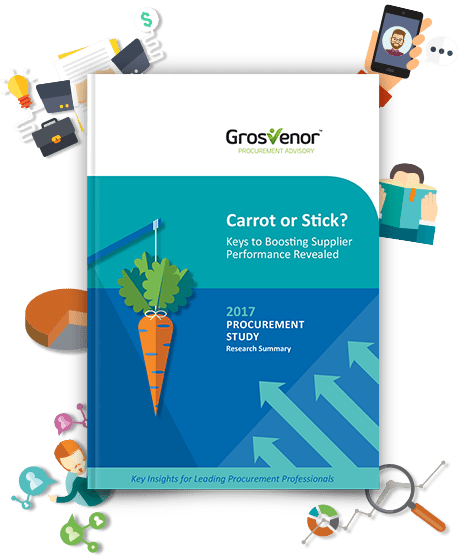What carrots work for NGO suppliers?

Governments across Australia contract more and more essential services from not-for-profit and non-government organisations (NGOs). Prime examples are the rollout of the National Disability Insurance Scheme (NDIS) and the NSW Smart, Skilled and Hired program.
But how should government agencies go about incentivising these service providers to achieve or better exceed performance expectations?
Of course there are the typical carrots like Fee at Risk, Share of Savings or Increased Scope. But are there any specific levers that are available to drive better performance from NGOs and not-for-profit suppliers?
Let’s explore this question and make a slight distinction between large NGOs and smaller NGOs.
Incentivising large NGOs
- Chances are that a part of the supplier’s revenue comes from donations. Think about what you could do to increase your supplier’s reputation amongst potential donors (and the amount of donations as a result).
- could you announce a formal partnership?
- are there case studies from your contract they could publish with your endorsement?
- could they write about you as a client in their newsletter? Could you even give out an “NGO of the Year” award for the best performing supplier?
- NGOs are worried about keeping a constant workload to manage their resource base. You can help address their underlying risk through longer-term contracts (more than three years) and the use of extension options to reward great performance. How about extending their contract a year early in case 90% of the KPI targets are achieved.
- Build a transparent relationship with your best performing NGOs. Regularly share with your suppliers your pipeline of contracts and upcoming opportunities. Also have open discussions with suppliers that are not performing as well as they should and explore the reasons for underperformance.
- are they losing money on the contract?
- is there something you can change internally to improve their performance?
Incentivising small NGOs
Some of the items from above will work for smaller NGOs, too. In addition, consider these carrots:
- small NGOs worry about their cashflow. Could you reward good performance through quicker payment? Or could you even move to pre-payments in some instances?
- bring them into the tent. NGOs employ a lot of people that are passionate about the work they do. They know what works best with the people in the community they serve. They have great ideas and initiative. What can you do to allow the best performing suppliers to help you design better services and contracts? Co-design is the buzzword here: giving supplier a real say in how services should be delivered, holding them to account for outcomes achieved, not dictating inputs. This gives skin in the game and a true sense of ownership
- make sure your contract closely aligns with the NGOs’ mission. Interesting work will provide the staff working on your contract a real sense of mission in achieving the goals for you
The above carrots tie in with the findings of our 2017 Procurement Study. We found that best performance is achieved if you are able to motivate, develop and challenge your suppliers.








